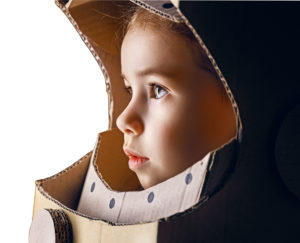 Summer is here, and it is OK for families to declutter their lives by scheduling some well-deserved downtime.
Summer is here, and it is OK for families to declutter their lives by scheduling some well-deserved downtime.
The school year of running about with life and the kids’ activities has come to an end. The Valley heat lends to us staying tucked inside and that is OK. I look forward every year to summer’s long hot days where I can schedule free time, relax and unplug from the routines without feeling guilty.
We talk about decluttering our living space, but what about decluttering our schedules? It takes mindfulness to schedule in the downtime and allow ourselves to take it. We all have to do some inward looking at ourselves to determine what matters in order to untether ourselves from life’s nonessential demands. Hearing our inner voices telling us what matters, as well as what doesn’t, means giving ourselves some quiet time. Our kids need it, too.
Less is more. So, this summer, allow yourself some unstructured time. Being a more conscious person means I can recognize when I am tired and stressed, and it is OK to downsize the clutter of my summer’s calendar.
Let the teenagers sleep in. Sleep research done on teens at Harvard Medical School, in Boston, Mass., and Trent University, in Canada, shows the effects of sleep on learning and memory. These tests show that the brain still is processing, consolidating and practicing what it learned throughout the day while asleep. Thousands of teens do not get enough sleep at night due to the fact their brains are keeping them up, which, in turn, makes them drowsy all day.
Studies show the ability to get to sleep and stay asleep is diminished in the teen years. Our brains still are experiencing neurological cognitive activity, even in our sleep. Teens are sleepy for a reason. Their brains and bodies just need sleep.
Younger children may need a decompression time from structured playtime and activities in order to self-direct to their own interests. When allowed to do so, kids will self-direct to those activities in which they are interested. Dr. Peter Gray, a research psychologist, at Boston College, and the author of Free to Learn, studies children’s play. “Children come into the world with instinctive drives to educate themselves,” he stated. “These include the drives to play and explore.”
You also can prepare an engaging environment by creating an area for arts and crafts or leaving books about the house. While this type of unstructured play can be difficult for most parents to wrap their minds around, there is a way to accept that all the things the kids are learning during unstructured playtime with their peers is valuable. The ability to get along, work together, compromise and negotiate is learned in our homes and playgrounds during this unstructured free play.
We need to allow our kids to learn these skills authentically. It doesn’t mean you let them go feral all summer. It just means it is not our job to micromanage every social situation for our children. We can’t be afraid to let them fall or fail as people. We all learn from our falls and failures.
Set the Stage for an Authentic Summer
- Create the Environment—Look for items to leave about that will work as a launching platform for deeper study and meaningful conversations your kids will want to talk about with you. Look for items you know
your child is passionate about. - Pull Out the Legos and an App—For Stop Animation Film Making (Lego makes a free app for this). Don’t forget a tripod or improvise.
- Make Stuff—Science, Technology, Engineering, Art and Math (STEAM). There is a huge maker community in Mesa. Find an online group and make something. Mesa Public Library—Red Mountain, Think Spot, Yahoo Groups, Arizona State University, Tech Shop in Chandler, Google + (Communities) Scratch or Makers Movement Groups, Meet Up/ Makers Groups, Arizona Science Center’s Create Space.
- Expand Blanket Forts to Camping On Mars—What would you take to live on Mars? What would you need? What would you do once you get there? Draw it, make it, act it out and film it. All kinds of authentic learning opportunities are happening with this one. Look online or in books for more ideas. NASA.gov.
- Favorite Books—Lay them about. Audiobooks count, too.
- Cook with the kids—Let them cook for you. Play restaurant.
- Tell and Write Stories—With the kids, and let them draw out the illustrations.
- Organize a Family Talent Show.
- Get To Know Your Neighbors—Have a summer night block party.
- Take a Free Massive Online Open Courseware Class—At edx.org, Coursera.org or any of the many universities that offer MOOCs for free or a small cost.
- Do Family Yoga And Meditation—Teach your kids how to relax and de-stress.
- Massachusetts Institute of Technology’s (MIT’s) Scratch Coding—Free software that is a lot of fun and learning for computer-able kids. Code.org is a simplified and more intuitive version of MIT’s version.
- Catch up—Address the things you never have time to get around to accomplishing. Even if you don’t finish it, keep working on it.
- Limit over-orchestrating your lives—Allow yourself and your family downtime to reflect, create, think and just be with each other.

